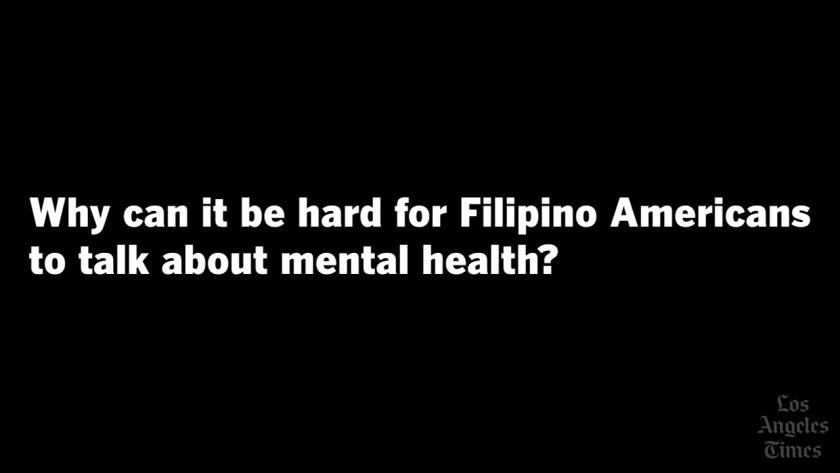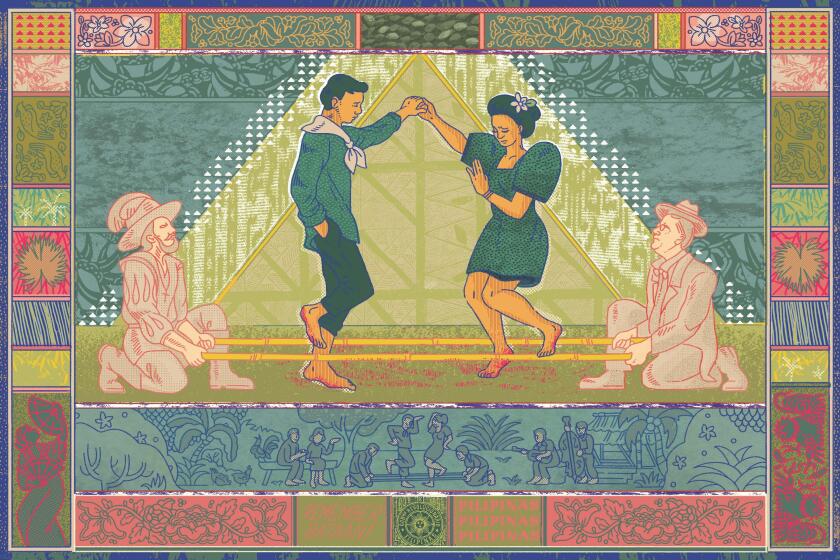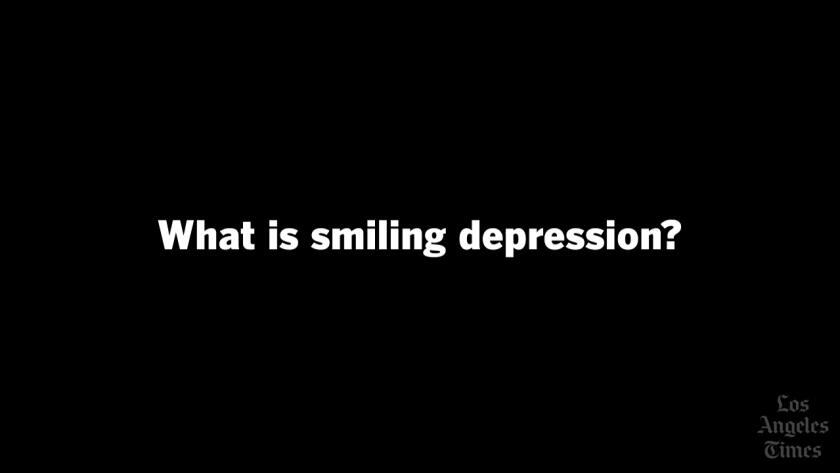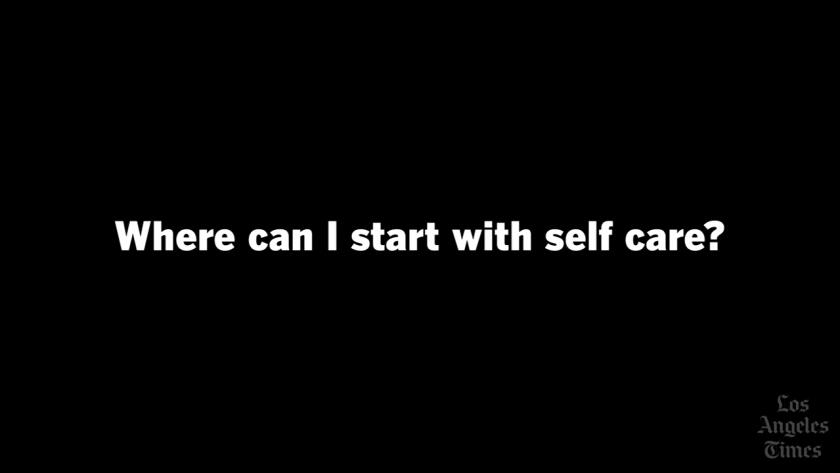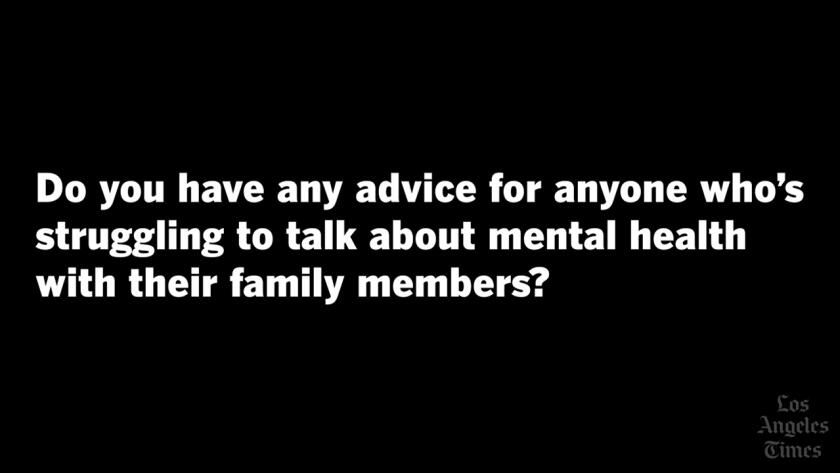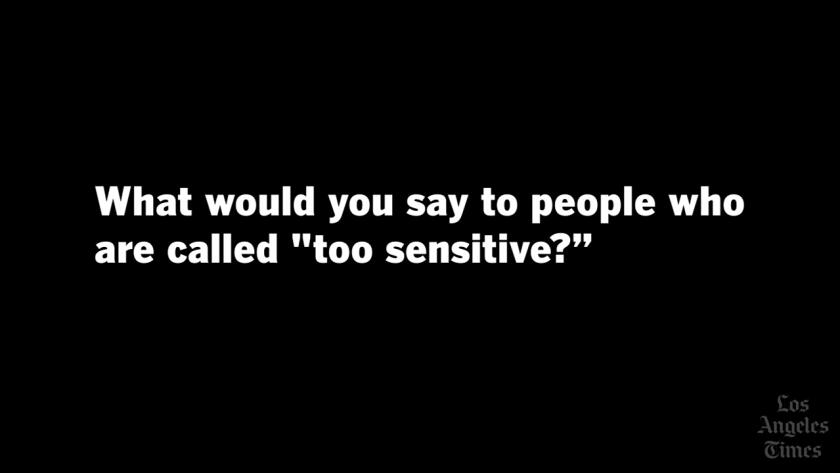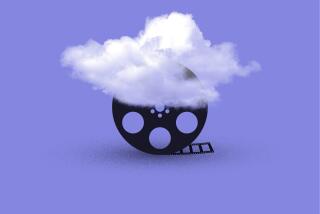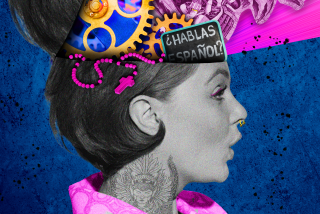What a therapist tells her Filipino American patients
- Share via
- Share via
Christine Catipon, a clinical psychologist at the UC Irvine Counseling Center, knows it can be challenging for Filipino Americans to find therapists who come from the same cultural background.
“Not that it’s a necessary requirement to be an empathetic therapist for someone,” she said. But when she can incorporate culture and history into therapy sessions, she finds that it often helps.
“My Filipino American clients sometimes feel like they’re going about things alone or they’re seeing things in a very unique way that makes them not understood,” she said.
Often, many of these Filipino values have been internalized, but her clients aren’t aware of them and how it might affect how they navigate the world, she said.
“So they’re like, ‘Oh, it’s me,’ when actually, ‘No, it’s societal, and it’s cultural,’” she said.
Filipino Americans have reported a higher COVID-19 mental health toll than Asian Americans collectively. What are some of the unique challenges that Filipino Americans face when dealing with mental health challenges?
Catipon, who is also the vice president of the Asian American Psychological Assn., shares her insights as part of The Times’ series on Filipino American mental health, supported by the Carter Center’s Rosalynn Carter Fellowships for Mental Health Journalism. The conversation has been edited for length and clarity.
This is a collection of articles about mental health in the Filipino American community and the factors that influence it.
Why can it be challenging for Filipino Americans to talk about mental health?
Part of it is that Filipinos are a collectivist community. That’s why there are a lot of comparisons. It’s why everything that we do is a reflection of how other people see our family. And if we start talking about things that are wrong, it could say something negative about the family. Like, “Oh, Mom didn’t raise her right” or “Dad was not available” or things like that, because a lot of those kinds of associations tend to get created within the community. And there might be a risk of losing face or some shame.
Then there’s also the piece of mental health having such a negative stigma. You know, with it being a predominantly Catholic culture, I found that with my patients, many of their families are not understanding about mental health concerns because it’s a reflection of people not being holy enough, not trusting God enough. You’re not praying enough. What we mental health professionals are saying is, “Actually, it’s OK to talk about things.”
How do you alleviate some of the shame that comes with talking about mental health?
When I can, I tie in the culture in a way that helps explain or validate their experience, as opposed to putting the fault on them. “You’re not doing something.” “You have to work harder.” “You can’t be lazy.” There’s just all of this blaming that happens when people are in mental distress.
Also, our expression of emotions is not healthy, for lack of a better word. Filipinos can be very all or nothing, I think, with the expression of emotion. But if we avoid it, it stays in the body, it stays in the mind, and at some point, it explodes. And if as a child, we learn that talking about feelings comes out as anger or intense expressions, we’re going to say nothing. And that creates a minimization of the feelings.
So, what do we do with that? When people are willing to come to therapy and learn healthy ways of communicating their feelings and expressing their feelings, it removes some of the shame around it.
- Share via
Can you explain the term “smiling depression?”
The first time I saw it as a term was in Kevin Nadal’s “Filipino American Psychology.” This refers to Filipinos’ tendency to smile and say everything’s OK when it’s not. And yet that avoidance and that bottling up of feelings ends up making us one of the populations that has the highest rates of depression because we’re not actually acknowledging it or doing something about it.
Other communities do this as well. You know, if you think about it, every time we ask somebody how you’re doing — “I’m fine, I’m fine, I’m fine,” when we’re not. And again, how much does a collectivist aspect of that tie into this, where I don’t want to burden people with my problems; I don’t want them to feel like they have to take care of me? There’s so much of that that also comes up with not wanting to open up to friends and family. “I’m going to burden them. They already have enough stress on their own.” So I see that a lot. So all of those kinds of factors contribute to smiling depression.
How can people be more active about managing their mental health?
I do think we need to be more active. We can’t just have an understanding about why we feel the way we do. We have to say, “OK, now that I understand that, what am I going to do about it?”
And here’s the thing. Self-care is a very foreign concept for people in a collectivist society because we are not individualistic by nature. We tend to think about the whole. So I’m not going to put my needs over others’.
And so when I talk to people about self-care, they’re like, “What is that?” So part of the challenge too, is to start providing education about self-care not being selfish, about self-care actually being self-honoring and self-nurturing so that you’re able to support people the way you keep doing.
Because if you just keep giving, giving, giving, you’re running on fumes. So self-care is actually really important in order for us to be able to do the work that we want to do and help others.
- Share via
Clinical psychologist Christine Catipon talks about where to start with self-care.
What advice do you give people who aren’t sure where to start with self-care?
Sometimes when people are stuck, I ask them: What did you enjoy doing as a kid? Did you like riding your bike? Did you like blowing bubbles? Did you like coloring? Did you like journaling? Did you like singing, playing piano?
Because sometimes that gives us clues. Bring it back to what you enjoyed as a child, and do more of that. Because many times, we do not have time to play. And I think play is still an important part of being an adult because we can get so stuck in our minds with responsibilities and chores and all this stuff. We need that creative outlet. We need those fun things to balance things, and automatically it tends to improve people’s mental health just by being able to be authentic in what they enjoy.
Self-care also looks like sleep. Self-care looks like eating. Self-care looks like exercise and taking your vitamins, as well as the fun stuff. Basically, you’re recharging and replenishing your battery so that you’re able to keep doing the things that you do. And therapy is self-care too, to have a place to process your feelings — to not hold on to this and not let it deplete you. So I think of it as replenishment for all the things that will deplete us naturally for just living our lives.
- Share via
Clinical psychologist Christine Catipon gives advice for anyone who’s struggling to talk about mental health with their family members.
Do you have any advice for anyone who’s struggling to talk about mental health with their family members?
It really depends on the family. Despite what I do, most of my family doesn’t understand what I do, and it’s been very challenging to have some of these conversations.
You have to find your community with whom you can talk about this. In a sense, it’s almost like a chosen family for mental health support, if I can’t have that within my family.
I think, though, that the pandemic has created a space of people acknowledging that mental health challenges are real, and I think the conversation has been improving quite a bit.
So many people are talking about mental health that it’s starting to normalize this experience for people of color. And then we think about Stop AAPI Hate, I think in the last year, that has been such a huge component of people realizing, “Wow, this feels terrible to be singled out and be fearful of my safety.” And this is happening across all Asian communities, not just East Asian. There were Filipinos attacked, so it hit home for a lot of us.
And even before that, we held a community event in Los Angeles for the Filipino community, and there were over 400 people present from the community. All ages. I was floored. I couldn’t believe so many people, especially elders, were coming to something like this, acknowledging that it’s important to have these conversations. So I feel hopeful in the sense that it’s getting out there.
And if it’s not something we can talk about in our family, maybe talk to a priest, maybe talk to an indigenous healer, whatever feels authentic for you and feels supportive to you. I welcome all modalities. You have to know what works for you, and maybe you won’t know until you try.
- Share via
Clinical psychologist Christine Catipon has advice for people who are called “too sensitive.”
More to Read
About this story
Videos produced, shot and edited Albert Brave Tiger Lee, with Utility Journalism assistant editor Ada Tseng and senior editor Robert Meeks. Additional camera by Jessica Q. Chen. Listening sessions facilitated by Agnes Constante, Ada Tseng, Danielle Fox and Karen Garcia.
Sign up for The Wild
We’ll help you find the best places to hike, bike and run, as well as the perfect silent spots for meditation and yoga.
You may occasionally receive promotional content from the Los Angeles Times.
